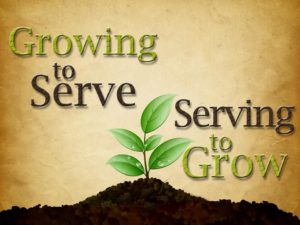 WHY IS THIS IMPORTANT?
WHY IS THIS IMPORTANT?
Ephesians 2:10 is a verse that gets overshadowed by its predecessor (2:9), but it contains an equally powerful message: “For we are God’s handiwork, created in Christ Jesus to do good works, which God prepared in advance for us to do.” You have heard it said, “We are saved to serve” and that is true. However, in recent years we have exchanged “come, let’s serve the Lord together” for “come on in and have a seat.” People are created to serve and sense that they truly belong when they are serving in and with the group.
WHAT DO I DO?
Inside the Group
A leader is wise to involve as many people in serving inside the group as possible. Teachers, according to Ephesians 4, are not to do ministry for everyone but to equip everyone for the work of ministry. If a person is given a service to perform during the group time, they are more likely to be present and on-time. If nothing is expected of them, then attendance becomes optional. Think of as many possible tasks that can be done: set-up team member, greeters, care leaders, fellowship leaders, host/hospitality leaders, and so forth. Seek to involve everyone.
Through the Group
Hopefully, you will begin to have group members leaving the group to start a new group or to serve in another age group ministry in the church. Groups should consider these people as missionaries serving beyond the group. Seek way to serve these missionaries. It may be serving in their place when they are on vacation or cannot be present. It may be serving them by making provisions for their new ministry. Your missionaries should see their former group as people willing and ready to serve them.
Beyond the Group
It is wise for every group to look for service opportunities for members in the church, in the community, in the city, and beyond. Mission service projects tend to unify the group and focus it on being a Great Commandment/Great Commission ministry. Look where group members go and are engaged beyond the group, are there ways the group can serve in those areas? For example, if group members have children that are involved in a recreational sports league, how might your group serve and minister to others who are involved. The Great Commission reminds us to make disciples as we go and wherever we go. So, go and serve.
_______________
Daniel Edmonds is the Director of the Office of Sunday School and Discipleship at the Alabama State Board of Missions





